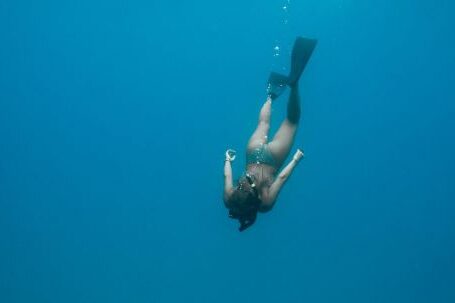For many people, the thought of being submerged underwater can be quite daunting. Whether you are scuba diving, snorkeling, or simply taking a dip in the pool, there are a few key strategies that can help you stay calm and confident underwater. In this article, we will explore these strategies and provide you with some useful tips to make your underwater experience more enjoyable and stress-free.
Understanding the Environment
Before diving into the water, it is important to have a good understanding of the underwater environment. Take a moment to observe the water conditions, such as the visibility and any potential hazards. Knowing what to expect can help alleviate any anxieties you might have.
Controlled Breathing
One of the most effective ways to stay calm underwater is to practice controlled breathing. By taking slow, deep breaths, you can regulate your heart rate and oxygen levels, promoting a sense of relaxation. Focus on inhaling deeply through your nose and exhaling slowly through your mouth. This technique can also help you conserve your air supply while diving.
Equalizing Pressure
Equalizing the pressure in your ears is essential when diving or snorkeling. As you descend underwater, the pressure increases, which can cause discomfort and even pain in your ears. To equalize the pressure, simply pinch your nose shut and gently blow air out through your nostrils. This will help open up the Eustachian tubes and equalize the pressure in your ears.
Buoyancy Control
Maintaining proper buoyancy is crucial for staying calm and confident underwater. Practice controlling your buoyancy by using your breathing and adjusting your weight distribution. Gradually add or release air from your buoyancy control device (BCD) to achieve neutral buoyancy. This will help you stay at the desired depth without exerting unnecessary effort.
Relaxation Techniques
When underwater, it is important to remain relaxed and conserve your energy. Practice relaxation techniques such as visualization and mindfulness. Imagine yourself floating effortlessly in the water, surrounded by beautiful marine life. Focus on the present moment and let go of any distracting thoughts or worries. By staying relaxed, you will be able to enjoy your underwater experience to the fullest.
Communication
Clear communication is essential when diving with a partner or a group. Before getting in the water, establish a set of hand signals or use a dive slate to communicate effectively underwater. This will ensure that everyone stays safe and informed during the dive.
Building Confidence
Building confidence underwater takes time and practice. Start by taking small steps and gradually increase the depth and duration of your dives. Surround yourself with experienced divers who can provide guidance and support. Remember that everyone learns at their own pace, so be patient with yourself and celebrate your achievements along the way.
Conclusion
Staying calm and confident underwater is a skill that can be developed with practice and experience. By understanding the environment, practicing controlled breathing, equalizing pressure, and maintaining buoyancy, you can enhance your underwater experience and reduce any anxieties or fears. Incorporating relaxation techniques and clear communication will further contribute to your overall confidence. With time and dedication, you will be able to explore the underwater world with a sense of calm and excitement. So take a deep breath, dive in, and embrace the beauty that lies beneath the surface.





